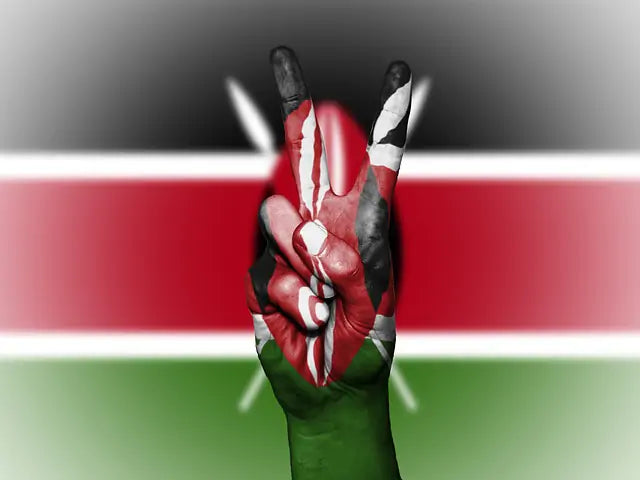Your basket is currently empty.
Shop NowRecycling Around the World A-Z: Kenya

Recycling Around the World A-Z:
Kenya
Kenya’s population is growing. It’s capital city Nairobi produces over 3,000 tonnes of waste alone, and this is set to more than double by 2030. Kenya is also becoming more prosperous, and the more money people have, the more items they will buy, and the more waste they will produce.
The waste problem
Nairobi has a growing waste problem. On any given day, you will see rubbish heaps piled with paper, plastic, and all kinds of other waste. Plastic bags are stuffed in drains and strewn around the streets. Only about ¼ of the waste people produce makes it to the city’s only rubbish tip, and even worse, only 5% of waste is recycled. This means that almost 70% of waste is not disposed of correctly.
Addressing the problem
To address the problem of waste in Nairobi, the city council has joined forces with the UN Environmental programme to develop the Nairobi Solid Waste Management Plan. The plan includes getting rid of the hazardous rubbish tip and creating a landfill. But landfills are not an ideal waste management method either. So the plan also recommended that recycling and composting should be the main methods of waste disposal. As much of 65% of Nairobi’s waste is bio-waste. The city already has a small-scale recycling economy, which could be developed to support the waste management plan.

Recycling
Many residents understand that waste is a problem, but recycling is not popular, especially in the areas where people have a middle to high income. These residents do not particularly care about recycling as they do not need the small amount of money that can be made from it. These are the residents who produce more waste too, as they can afford to buy more things. The authorities have more to do to educate people in these areas about recycling.
The private sector approach to waste management
A private waste management company, Taka Kenya, is tackling the problem of the low recycling rate. They have partnered with Kenya’s biggest supermarket chain, Nakumatt, to install recycling containers in 21 stores in Nairobi and some outside of the city.
The company will also weigh the collected items at regular intervals to produce statistics on the effectiveness of the container scheme. Taka Kenya will use some of the money generated from recycling to fund community projects.
Situating the containers at the supermarkets will make them accessible for the currently disinterested middle and upper income families, and this might go some way to changing attitudes about recycling.
The problem of E-waste
E-waste is one of the fastest growing categories of waste all across the world. Nigeria and Ghana are hotspots for the dumping of this type of waste, and Kenya is fast becoming one. Around 15,000 tonnes of used electronics are shipped to Kenya from western nations each year.

The first E-waste recycling hub
This has led to the creation of an electronics recycling hub, funded by investors from Kenya, a German bank, and a private businessman. The hub is intended to have economic, social, and environmental benefits, and it is hoped that other African countries will follow suit and develop a similar hub to deal with their waste problems. The hub is staffed by Kenyan people so it provides them with a living.
Waste as a resource
The hub has another goal; to encourage people to see waste as a resource. If people see that they can make money by collecting and recycling waste, it will go some way to changing their attitudes about it.
In Kenya, many people collect discarded electronic parts and take it to a collection point where it is separated and weighed. They get cash for it, which for many people is the difference between feeding their families or not.
Producer responsibility
A law is set to come into effect where manufacturers of electronics will have responsibility for it when it is no longer needed. Dell Computers are one of the companies who have pledged to deal with products at the end of their life cycle.






